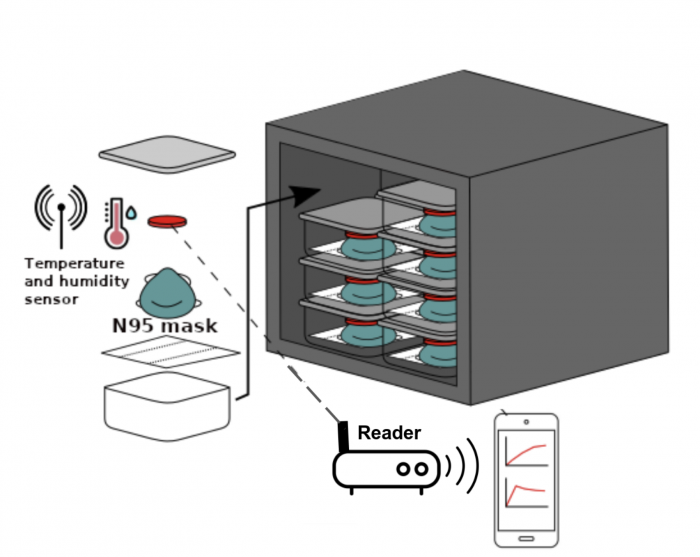
They’re being developed and tested at the University of Michigan through a new National Science Foundation RAPID COVID-19 grant.
The batteryless sensors are designed to provide more accurate and less cumbersome monitoring during the decontamination of protective masks for medical workers. In an effort to ensure availability of N95 masks when supplies are still tight, the devices help to ensure sufficient heat and humidity is used in decontamination systems.
The project is a joint effort between Fu, Ph.D. student Yan Long, and Co-PI Dr. Sara Rampazzi, who recently accepted a tenure-track position at the University of Florida.
